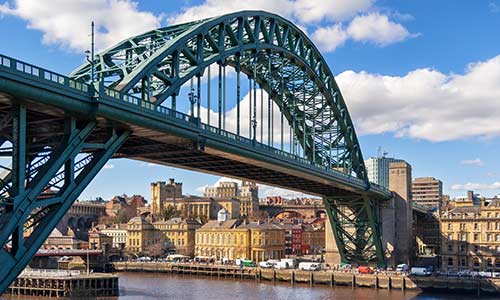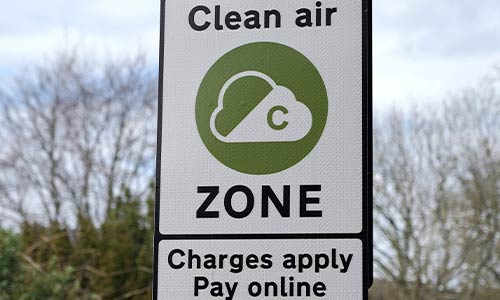
Does Manchester have a Clean Air Zone (CAZ)?
Last updated October 12th, 2023
Manchester was once slated to have a Category C Clean Air Zone (CAZ). This was inspired by the Bath Clean Air Zone, Bristol CAZ – and other successful initiatives such as London’s Ultra Low Emission Zone (ULEZ) and Congestion Charge zone.
Under the proposed scheme, drivers of vehicles that failed to meet certain emissions standards would have to pay a daily fee for driving within Greater Manchester. However, these plans ultimately never came into fruition.
In this guide, we’ll explain why the plans for a Manchester CAZ were initially drawn up, how the scheme may have affected motorists travelling within the city – and why it was eventually scrapped.
Value your car in under 30 seconds
Where was the Manchester Clean Air Zone meant to be?
The proposed Manchester CAZ was set to cover all 10 boroughs across Greater Manchester.
Why was the Manchester Clean Air Zone supposed to be implemented?
The Manchester CAZ was meant to be implemented to help cut roadside Nitrogen Dioxide (NO2) emissions to fall within the legal limits by 2024.
When was the Manchester Clean Air Zone meant to begin?
Originally, the Manchester CAZ was slated to be launched in Greater Manchester on Monday 30th May 2022.
Why wasn’t the Manchester Clean Air Zone implemented?
After the authorities of Greater Manchester reviewed the proposal, it was decided that Manchester’s CAZ plans should be withdrawn.
During the COVID-19 pandemic, both prices and demand for second-hand vehicles increased exponentially. As a result, it was now more expensive for motorists to make the switch to lower-polluting vehicles. Therefore, the authorities concluded that a Manchester CAZ would not be viable.
Who would’ve paid the Manchester Clean Air Zone fees?
As this was meant to be a Class C Clean Air Zone, owners of commercial and private hire vehicles that failed to meet the minimum emissions standards (the same criteria used for ULEZ exemption) would have had to pay a daily fee for driving within Greater Manchester.
What would the fees have been for the Manchester Clean Air Zone?
It was proposed that lorries, buses and coaches that failed to meet the minimum emissions standards would have been charged a fee of £60 a day. Non-compliant vans, taxis and private hire vehicles would have been charged at a rate of £7.50 per day.
Was there funding available to help drivers upgrade vehicles so they would be compliant?
The Government offered to provide £120m in funding to help drivers in Greater Manchester upgrade their non-compliant vehicles. However, this figure was less than what Greater Manchester had asked for - and the plans for a Manchester CAZ ultimately fell through.
What’s happening next with the Manchester Clean Air Zone?
As of September 2023, the Manchester CAZ is not in force. At present, Clean Air Greater Manchester’s investment-led plan does not include a chargeable Clean Air Zone.
According to the Clean Air Greater Manchester website, the Clean Air Zone was not introduced as planned in May 2022, as the pandemic led to significant vehicle supply chain issues, rising vehicle prices – and a cost-of-living crisis.
It was also noted that a Clean Air Zone could cause ‘significant financial hardship’ for residents.
In January 2023, the Government requested further evidence from Clean Air Greater Manchester to underpin an investment-led non-charging Clean Air plan:
- Evidence submitted in March 2023 showed how investment in zero-emission buses would help meet the legal nitrogen dioxide (NO2) limits on the A58 (Bolton Road) in Bury. (The regulated Bee Network launched in parts of Greater Manchester on 24th September 2023.)
- Additional evidence was expected in June 2023, which included extra modelling to show how plans to meet NO2 limits without enforcing a charge performed against the benchmark of a Clean Air Zone to address the excess pollution identified in Central Manchester and Salford.
- Due to the Government’s review of its bus retrofit programme, both sets of evidence will require further work from Greater Manchester.





